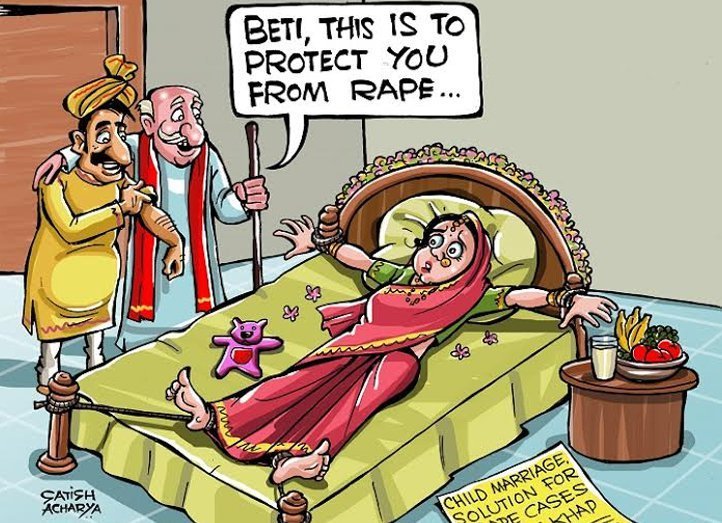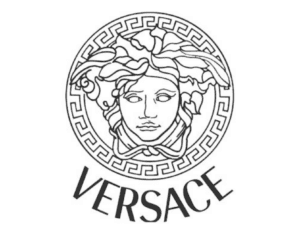Rape and child-marriage are the two topics that are discussed and debated a lot in India, but rarely together. To protect a child from becoming a spouse at an immature age, the Child Marriage Restraint Act, 1929 has defined the marriageable age of a male person as 21 and a female person as 18. To protect a woman from rape and violence, the Criminal Law (Amendement) Act 2013 has also incorporated offences like acid attack, sexual harassment, voyeurism and stalking.

Despite the protection lawfully given to every citizen in India, there are loopholes. The concept of marital rape does not apply in India as marriage is treated as something sacred, the government told the Parliament on April 30, as reported by NDTV .
In 2014, India recorded the second-highest number of child marriages according to a UNICEF analysis, according to a eport in The Hindu .
Amidst these illegal activities and twisted laws, Justice Madan B Lokur, who leads the Social Justice Bench, asked the National Commission for Women to explain how the offence of rape in the IPC allowed an exception to a man to have physical relationship with his minor wife and the act still not qualify as a crime. The question arose after a petition was filed by an NGO called Independent Thought.

According to The Hindu , the NGO wants the Supreme Court to declare that the Exception 2 in Section 375 of the IPC is “violative of Articles 14 , 15 and 21 of the Constitution to the extent that it permits intrusive sexual intercourse with a girl child aged between 15 and 18 years, only on the ground that she has been married.”
The Exception in Section 375 of the IPC states, ‘sexual intercourse by a man with his wife, the wife not being under fifteen years of age, is not rape.
Threrefore a married minor female above the age of 15 but under the age of 18 is not protected from marital rape, by law.
The Articles of the Constitution, which according to the NGO, are being violated due to the implementation of the Exception in Section 375 of IPC states the following rights to every citizen of India:
Article 14 : the State shall not deny to any person equality before the law or equal protection of the laws within the territory of India,
Article 15 : The State shall not discriminate against any citizen on grounds only of religion, race, caste, sex , place of birth or any of them,
Article 21 : Protection Of Life And Personal Liberty: No person shall be deprived of his life or personal liberty except according to procedure established by law.
The Exception in Section 375 of IPC is also contrary to the provisions of the Protection of Children from Sexual Offences Act (POCSO), 2012 , which protects a child from sexual assault, sexual harassment and pornography.
Several questions arise when Indian laws are compared with each other as several loopholes get noted:
1. According to the NDA government, to uphold the sacredness of marriage in India, marital rape is not recognised as a crime . Is child marriage sacred, while it is criminal under the law?
2. If a girl child in India legally remains a child until she turns 18, why does the Exception in the Section 375 of IPC state a wife to be someone who is not ‘ under 15 years of age ‘? In India a girl can legally become someone’s wife only if she crosses the age of 18. NOT after crossing the age of 15.
This is a glaring miss, and unless amended, it will continue to allow for a number of young girls to be married off as minors and yet not make them eligible to report rape. India needs to begin with recognising marital rape as a real crime.

















